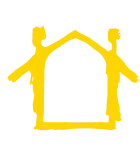Human Rights House Tbilisi and its member organizations express concern about the frequent arrests and prosecutions following the anti-occupation protests in Tbilisi since June 20, raising reasonable questions among society. Human Rights House Tbilisi together with its member organizations recommends Georgian authorities to refrain from violating human rights and repressing people critical of the government.
The government has demonstrated excessive force against protesters on June 20. In response to a small group of citizens attempting to enter the parliament building, law enforcers have used rubber bullets, tear gas and water cannon without warning, regardless the status of those close to the parliament. Due to the use of disproportionate force, 240 people have been transferred to health facilities; at least 2 people have lost their eye; several protesters have become severely harmed and more than 30 journalists and media representatives have been injured. The most severe injuries were caused by the rubber bullets used by police officers.
Human Rights House Tbilisi member organizations urge the Georgian government to investigate the facts regarding the law enforcers using excessive force on June 20 and raise the matter of political and criminal liability of the relevant persons.
June 20 developments were followed by the obvious oppressive methods used by the government: More than 10 persons participating in the anti-occupation demonstration on June 20-21 have been charged with group violence (Criminal Code of Georgia, Article 225, part 2). Nikanor Melia, opposition MP, Bezhan Lortkipanidze, biologist and the employee of Nekresi species conservation center and the nephew of the father of Temirlan Machalikashvili – 19-year-old boy killed within a special operation in Pankisi –are also among the accused ones. Publicly reported allegations against them are extremely vague and unconvincing. According to the Ministry of Internal Affairs, the intense investigation of the incidents close to the parliament on June 20-21 is still on, under Article 225 and 315 of the Criminal Code of Georgia.
It is also alarming that in the wake of the mentioned ongoing processes, after Mamuka Khazaradze announced about the establishment of a civil movement, Prosecutor’s Office of Georgia has charged the founders of TBC Bank – Mamuka Khazaradze and Badri Japaridze – with money laundering, under the Article 194 of Criminal Code of Georgia.
Recent cases of pressure on media, as well as the presumed politically motivated prosecutions, is also worth to be mentioned:
Irakli Okruashvili, the leader of the political party Victorious Georgia has been detained referring June 20 developments, under the Article 225 of the Criminal Code of Georgia (organizing, heading and participating in group violence). It is also important to highlight that the investigation on June 20 developments began on July 23, suspiciously coinciding with Irakli Okruashvili’s announcement on July 19 – claiming ownership of Rustavi 2 and requesting the seizure of the shares of Kibar Khalvashi and Panorama Tbilisi.
Nika Gvaramia, former Director-General of Rustavi 2 TV channel has also been charged after he announced to launch a new TV channel.
Vato Tsereteli, the founder of TV Pirveli critical of the government was also summoned for questioning. Tsereteli supposes his father to be accused of manipulating over him.
The chain of mentioned developments portrays that the government seeks to suppress civil protests by grossly violating human rights and opposing the idea of democratic rule of law.
Human Rights House Tbilisi and its member organizations urge the government authorities and ruling political party to:
- Conduct a transparent investigation on using disproportionate and forceful methods against protesters on June 20 and start prosecution only in case of the existence of sufficient pieces of evidence;
- End suspicious arrests of political opponents and allow the citizens to freely express legitimate protest and opinions;
- Provide security of broadcasting and editorial independence of the media critical of the government, including by initiating dubious criminal cases.
- Prosecutor’s Office of Georgia to uphold the rule of law and conduct the investigations of criminal cases not based on selective justice but considering the importance and severity of the issue, as well as counting on the interests and demands of those affected by the alleged crime.

